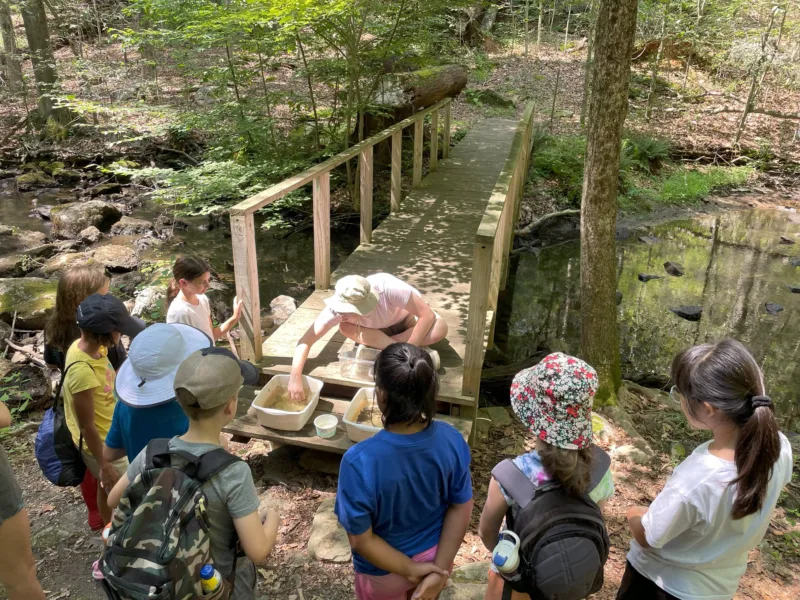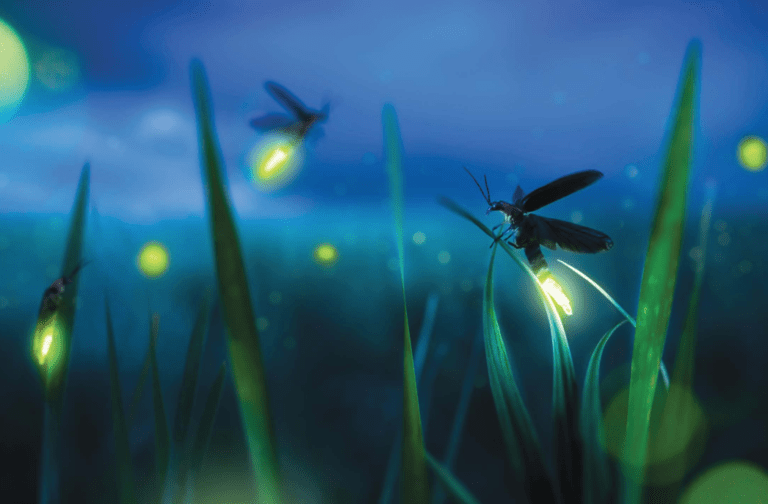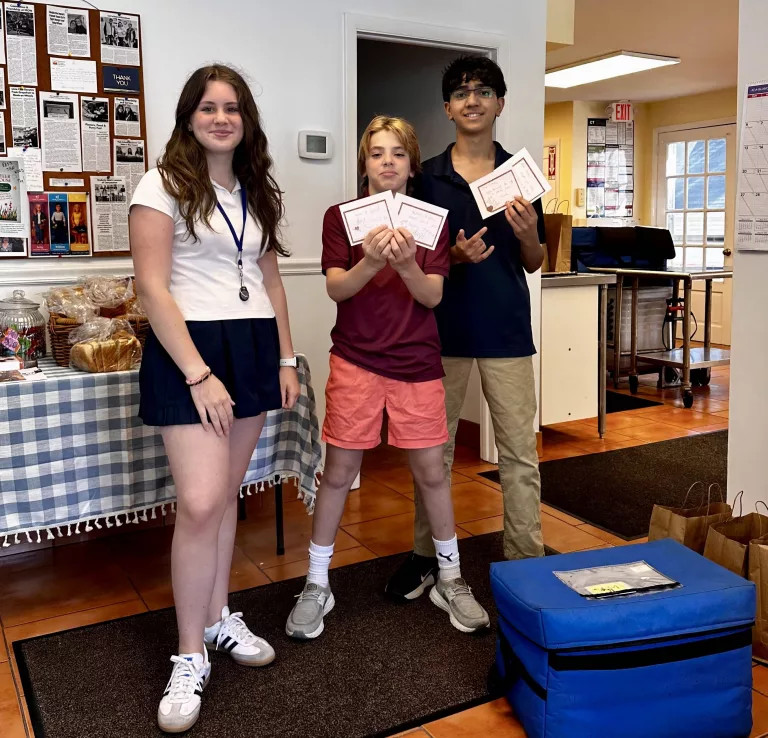
By Christian Alexander
One of the core lessons we always emphasize at our Greenwich Audubon Summer Camp is how our campers can take what they learn back home. From recycling and composting to creating bird-friendly pollinator gardens, campers learn practical ways to create positive impacts on the environment and support birds and the places they live.
Regardless of whether a camper lives in an apartment in a highly urbanized area or is similarly surrounded by nature at home, there are always small steps campers, and anyone, can take to support their local ecosystems. Learning these lessons can have lasting impacts that result in lifelong inspiration. In fact, three of our staff members at the Greenwich Audubon Center started out as campers here!
What makes the Greenwich Audubon Summer Nature Camp so memorable and meaningful? It’s not just the picturesque surroundings, chirping birds, or the exciting activities; it’s the holistic experience that fosters a deep connection with the environment. Children leave our property every day excitedly telling their caregivers about the animals they saw, the forests, swamps, rivers, and meadows they explored, or even proclaiming that they are going to build their own worm compost bin at home!
Campers absolutely love observing the wildlife, from birds to the bugs and plants they eat! Birds act as early warning systems about the health of our environment, and they tell us that birds – and our planet – are in crisis. Here at the Greenwich Audubon Center, as part of the National Audubon Society, we are working to alter the course of climate change and habitat loss, leading to healthier bird populations and reversing current trends in biodiversity loss. At summer camp, we foster a culture of caring for our shared environment, and teach campers how they too can make an impact.
On days when the weather may not be cooperative, or we are just taking time to learn inside the center, campers also have the opportunity to get up close and personal with our animal ambassadors – the animals that call our Learning Center home! While younger campers are making their first connections with our frogs, snake, and turtle, older campers can learn how to take care of them and have even designed enclosures!
Through hands-on activities like nature hikes, wildlife observation, and scientific experiments, campers learn about the delicate balance of ecosystems, the diversity of flora and fauna in their local communities, and the importance of conservation. Guided by knowledgeable naturalists, they embark on educational adventures across our 285-acre sanctuary, witnessing firsthand the interconnectedness of all living things. With seven individual weeks across the summer, and four unique themes, our campers able to attend multiple weeks are exposed to an even wider variety of conservation topics and ecosystems. However, those who are only able to attend one week are still able to get the quintessential “Audubon Summer Camp” experience that has been at the heart of our program for decades.
Camp at the Greenwich Audubon Center is particularly special because our campers don’t just grow week-to-week, but year-to-year. We have an “early-career track” that continues after summer camp, offering multiple pathways for deeper engagement: 15-17 year olds can volunteer as Counselors-in-Training (CITs), 16-19 year olds can intern with our Eco Leadership Corps, and ultimately, anyone can apply for summer jobs as a Teacher Naturalist, Camp Coordinator, or even the Camp Director like myself! In 2023, our summer team consisted of one Teacher Naturalist, one Eco Leader, and four CITs who were previously campers.
By the end of each week, our campers have not only learned about the environment around them, but the ways in which they can take action to support their environment at home. They have also made meaningful connections with other children their age through nature and are able to make those same connections with friends and family outside of camp to inspire them to participate in these actions. Children at such a young age are able to experience and gain a fundamental appreciation for the birds we protect and the many places they live in a unique way at locations like the Greenwich Audubon Center, with curiosity, wonder, and creativity. More than that, they can be inspired to view the world from the lens of a lifelong naturalist or conservationist, regardless of any path their life may take them.
Christian Alexander is the Senior Coordinator of Community Programs at the Greenwich Audubon Center. He holds two masters degrees, one in informal education, and one in Marine Biology, where his research focused on experiential and research-based learning methods and Lobster Fisheries, respectively.





